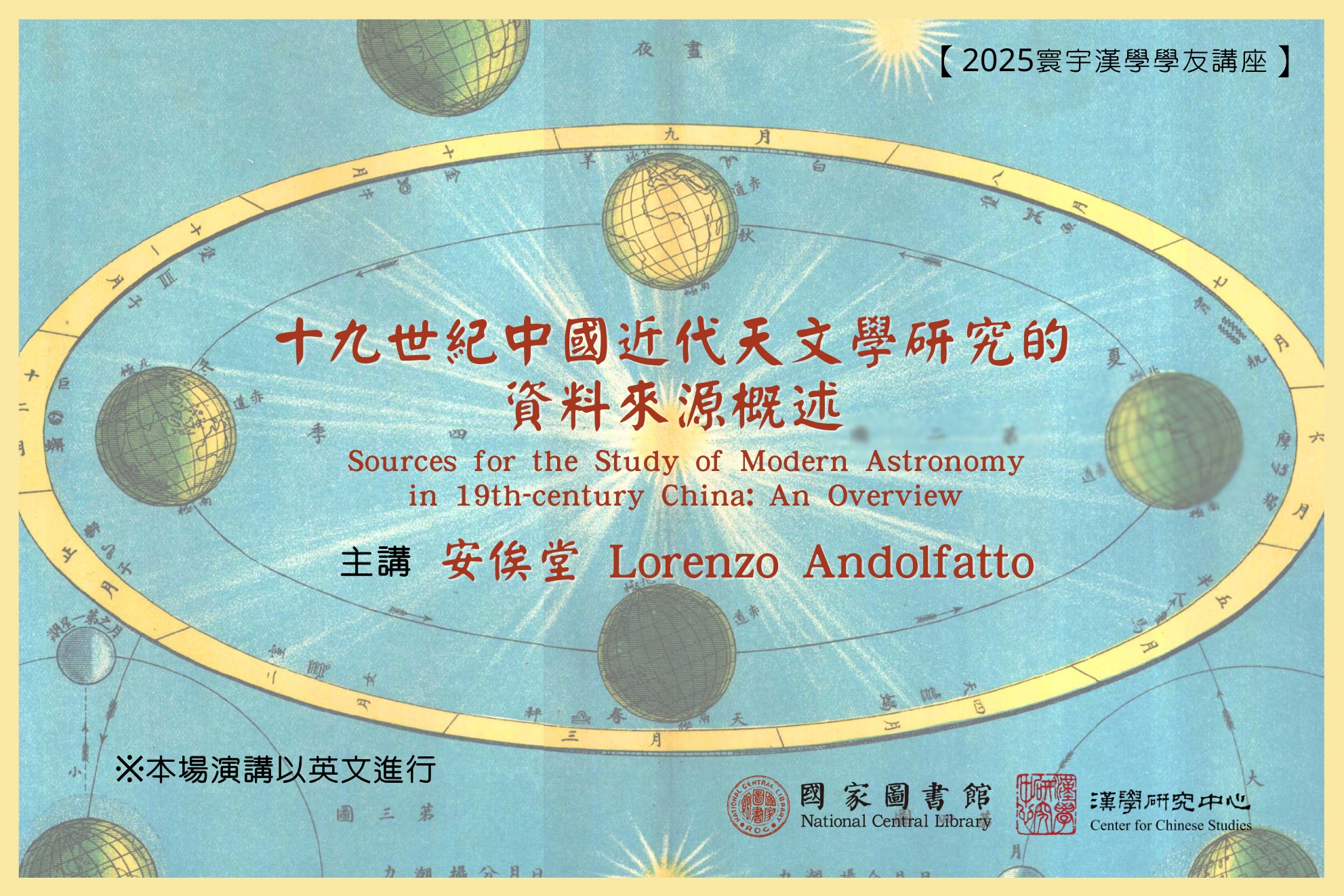2025寰宇漢學學友講座:十九世紀中國近代天文學研究的資料來源概述
|
||||||||||||||
演講摘要:
So far, the circulation of Western astronomical knowledge in modern China has largely been studied through the lens of the “eastward spread of Western learning” and the role that Jesuit missionaries played in the integration of Western mathematical models in the Chinese knowledge system. However, the gradual decline of the Jesuit order in Europe as well as the Qing court’s “[lack of] incentive to go beyond the needs of the calendar” slowly relegated astronomy as a secondary science to which less and less attention was paid. This was not the case in Europe, where technological improvements in instrumentation led to more accurate sky observations, new discoveries, and novel cosmological theories and methods that expanded the spatial and temporal coordinates of the known universe. As the European colonial presence in China intensified in the mid-19th century, modern astronomy began to gain traction in the Chinese context, reshaping existing knowledge systems and opening new venues for thought. Taking Kang Youwei’s Zhutian jiang as its starting point, this lecture explores the extended network of sources through which new astronomical knowledge took hold in the epistemic context of turn-of-the-century China, as once-authoritative truths were disputed and traditional knowledge re-evaluated in light of modern science.
So far, the circulation of Western astronomical knowledge in modern China has largely been studied through the lens of the “eastward spread of Western learning” and the role that Jesuit missionaries played in the integration of Western mathematical models in the Chinese knowledge system. However, the gradual decline of the Jesuit order in Europe as well as the Qing court’s “[lack of] incentive to go beyond the needs of the calendar” slowly relegated astronomy as a secondary science to which less and less attention was paid. This was not the case in Europe, where technological improvements in instrumentation led to more accurate sky observations, new discoveries, and novel cosmological theories and methods that expanded the spatial and temporal coordinates of the known universe. As the European colonial presence in China intensified in the mid-19th century, modern astronomy began to gain traction in the Chinese context, reshaping existing knowledge systems and opening new venues for thought. Taking Kang Youwei’s Zhutian jiang as its starting point, this lecture explores the extended network of sources through which new astronomical knowledge took hold in the epistemic context of turn-of-the-century China, as once-authoritative truths were disputed and traditional knowledge re-evaluated in light of modern science.

